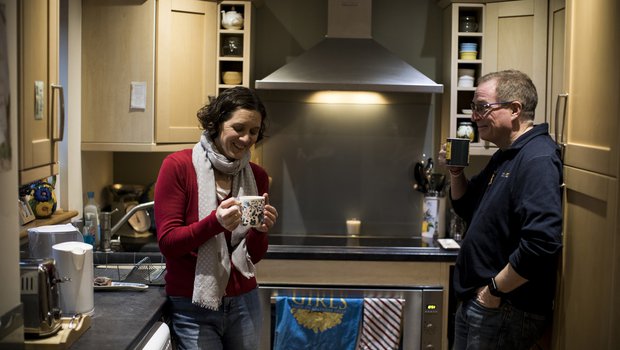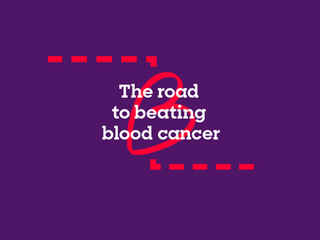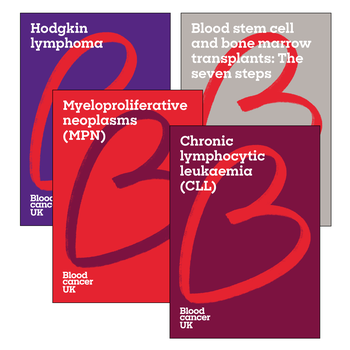Chronic myeloid leukaemia (CML)
Chronic myeloid leukaemia (CML) is a type of blood cancer that affects a group of white blood cells known as myeloid cells.

Chronic myeloid leukaemia (CML) is a type of blood cancer that affects a group of white blood cells known as myeloid cells. Chronic means it is slow-growing.
Your body needs new blood cells all the time, which are all made in the bone marrow. In a healthy person, ‘starter cells’ in the bone marrow, called myeloid stem cells, develop into myeloid blasts, before eventually turning into mature (fully functioning) blood cells.
If you have CML, your body produces too many myeloid blasts and too many white blood cells called granulocytes. These cells overcrowd the bone marrow, meaning there isn’t enough room for other important blood cells to be made.
Some myeloid blasts also enter the bloodstream and, because they haven’t developed properly, stop your body from fighting infection properly.
There are three phases of CML: the chronic phase, the accelerated phase and the blast phase.
CML is more common in older people and very rare in children under 15. Around 750 people are diagnosed with CML each year in the UK.
Leukaemia (also spelled leukemia) is the name for a group of blood cancers that affect blood cells in your bone marrow – usually white blood cells. Leukaemia mostly affects adults but it can also happen in children.
There are different types of leukaemia. Some types are slow-growing (chronic) and some are fast-growing (acute).
We don’t know exactly what causes CML, but some things like age and sex make it more likely.
Half of people with CML are aged over 60 and it is slightly more common in men than women.
The symptoms of CML that you may experience depend on which phase of the disease you are in.
Common symptoms include tiredness, unexplained weight loss and night sweats.
You’ll have tests to confirm whether you have CML. Then if you’re diagnosed with CML, you’ll have some more tests to help your healthcare team 'stage' the CML (find out which phase it's in), and decide which is the best treatment for you.
If you've just been diagnosed with CML
Sign up to our weekly support email for people recently diagnosed.
It gives you clear and simple information, practical tips and advice from others with blood cancer, to help during the first few weeks and months after diagnosis.

CML treatment
The aim of treatment for CML is to reduce the number of myeloid blasts in your body to low enough levels for you to have a normal life expectancy.
Most people with CML take a daily dose of a drug called a tyrosine kinase inhibitor (TKI), which is taken orally (in tablet form).
If TKIs don't work for you, or if you're diagnosed with blast phase CML and treatment gets you back to the chronic phase, your doctor may recommend a stem cell transplant.
CML prognosis
Thanks to treatment with TKIs, survival rates for CML have improved dramatically over the last 20 years.
For most people, the prognosis for CML will be very good – particularly for people diagnosed in the chronic phase.
"I have just been diagnosed with chronic myeloid leukaemia and I’m all over the place. I just can’t believe how much my life has changed in a week."
People with CML are discussing how they feel about it and supporting each other on our online forum. Read the conversation and join if you want to here: Just been diagnosed CML
CML research impact
Clinical trials are how we find new treatments and improve current ones. We can help you find out about clinical trials for CML. Even if you just want to know a bit more about CML research, try our Clinical Trials Support Service.
Our pioneering research into chronic myeloid leukaemia (CML) has played a dramatic role in improving treatment and survival rates for CML.

The road to beating CML
Big progress has been made in CML treatment, thanks to the development of drugs called TKIs. In this blog we discuss how we might one day completely cure CML.



